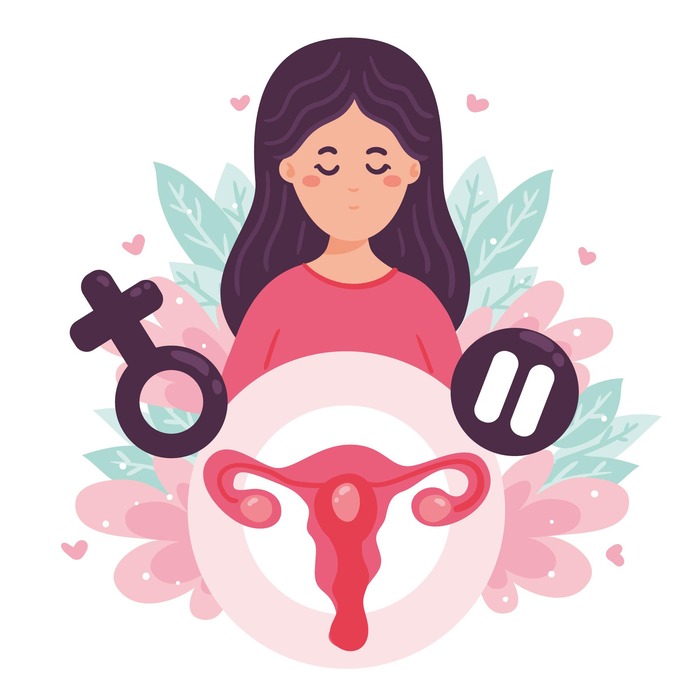

PCOS: Understanding Problems, Treatments and Solutions
Polycystic Ovary Syndrome (PCOS) poses a significant health challenge for millions of women worldwide. This complex hormonal disorder, characterized by irregular periods, excess androgen levels, and polycystic ovaries, affects women of reproductive age. Understanding the multifaceted nature of PCOS is crucial for effective management and treatment.
PCOS Problem: Unveiling the Complexity
PCOS is not a simple condition with a single cause but rather a multifactorial disorder influenced by various genetic, environmental, and lifestyle factors. Genetic predisposition plays a significant role, with women having a family history of PCOS being more susceptible to its development. Specific genes related to insulin resistance, hormone regulation, and ovarian function have been implicated, shedding light on the hereditary aspect of the condition.
Hormonal imbalances, particularly involving insulin and androgens, contribute to the pathophysiology of PCOS. Insulin resistance, a common feature among PCOS patients, leads to elevated insulin levels and subsequent overproduction of androgens in the ovaries, disrupting normal ovulation patterns and menstrual cycles.
Environmental factors, such as exposure to endocrine-disrupting chemicals (EDCs) found in plastics and pesticides, further exacerbate PCOS symptoms by interfering with hormonal regulation. Dietary habits also play a crucial role, with high-glycemic index foods and processed sugars worsening insulin resistance and aggravating PCOS manifestations.
Lifestyle choices, including sedentary behavior and poor dietary habits, significantly contribute to the prevalence and severity of PCOS. Lack of physical activity and consumption of calorie-dense, low-nutrient foods contribute to weight gain and insulin resistance, exacerbating PCOS symptoms. Chronic stress and inadequate sleep further disrupt hormonal balance, exacerbating the condition.
Inflammation and oxidative stress are prevalent in PCOS, perpetuating hormonal dysregulation and insulin resistance. These processes are closely intertwined, contributing to the pathogenesis of PCOS and exacerbating its symptoms.
Various other factors, including hormonal disruptions during fetal development, puberty-related hormonal fluctuations, ethnic predispositions, and psychological factors like stress and depression, also play roles in PCOS development and progression.
PCOS Treatment: Navigating the Solutions
Effective management of PCOS requires a comprehensive approach tailored to individual needs. Lifestyle modifications, including dietary changes and regular exercise, form the cornerstone of treatment. Adopting a low-glycemic index diet rich in fiber and nutrients can help stabilize blood sugar levels and improve insulin sensitivity, alleviating PCOS symptoms.
Incorporating regular physical activity into daily routines promotes weight loss, enhances insulin sensitivity, and reduces the severity of PCOS symptoms. Strength training and aerobic exercises have been shown to be particularly beneficial in improving metabolic health and hormonal balance in women with PCOS.
Medical interventions may be necessary in some cases to manage specific symptoms of PCOS. Oral contraceptives can regulate menstrual cycles and reduce androgen levels, while anti-androgen medications may help alleviate symptoms like hirsutism and acne. Metformin, a medication commonly used to treat type 2 diabetes, can improve insulin sensitivity and regulate menstrual cycles in women with PCOS.
In vitro fertilization (IVF) and other assisted reproductive technologies may be recommended for women with PCOS struggling with infertility. However, optimizing overall health through lifestyle modifications remains essential to enhance the success of fertility treatments.
Empowering Women with PCOS
PCOS is a complex and multifaceted condition that requires a holistic approach to management. By addressing underlying hormonal imbalances, insulin resistance, and lifestyle factors, women with PCOS can effectively manage their symptoms and improve their overall health and well-being. Through awareness, proactive healthcare, and personalized treatment strategies, women can navigate the challenges of PCOS and reclaim control over their reproductive health.
Here are the top 5 frequently asked questions (FAQs) about PCOS:
-
What is PCOS and what are its symptoms? :
PCOS, or Polycystic Ovary Syndrome, is a hormonal disorder characterized by irregular periods, excess androgen levels, and polycystic ovaries. Symptoms include irregular menstrual cycles, acne, hirsutism (excessive hair growth), and weight gain. - What causes PCOS? :
PCOS is a multifactorial disorder influenced by genetic, environmental, and lifestyle factors. Genetics, insulin resistance, hormonal imbalances, and environmental exposures to endocrine-disrupting chemicals (EDCs) are believed to contribute to its development. - How is PCOS diagnosed? :
PCOS is diagnosed based on symptoms, medical history, and physical examination. Blood tests to assess hormone levels, ultrasound imaging to examine the ovaries, and ruling out other conditions with similar symptoms are typically part of the diagnostic process. - What are the complications of PCOS? :
PCOS can lead to various complications, including infertility, type 2 diabetes, cardiovascular disease, endometrial cancer, and mental health issues such as depression and anxiety. - What is the treatment for PCOS? :
Treatment for PCOS focuses on managing symptoms and addressing underlying hormonal imbalances and insulin resistance. Lifestyle modifications, such as a healthy diet and regular exercise, are often recommended. Medical interventions may include hormonal contraceptives, anti-androgen medications, insulin-sensitizing drugs like metformin, and fertility treatments.
Are you struggling with PCOS symptoms?
Take control of your health with personalized care at Daffodils Hospital, the best hospital in Delhi and Gurgaon for delivery. Our expert team specializes in comprehensive PCOS management, offering tailored treatment plans to address your unique needs. Don't let PCOS hold you back - schedule a consultation today and embark on your journey towards improved health and well-being.
Share views on PCOS: Understanding Problems, Treatments and Solutions
Please keep your views respectful and not include any anchors, promotional content or obscene words in them. Such comments will be definitely removed and your IP be blocked for future purpose.